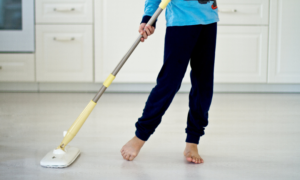
Developmental milestones by age 13
Developmental milestones or developmental indicators are a set of behavioural or functional skills thresholds that map the course of your child’s development. These behaviours are categorised into five domains – communication and language, physical and motor, social and emotional, adaptive and cognitive. Parents must keep in mind that India has great linguistic diversity, and children may have to be taught the same words in different languages. By age 13, a child normally attains the following skills in each domain.
Developmental milestones by age 13 – Language Milestones
- Use metaphors, slang, text-speak, and other ways of talking
- Has discussions, debates, and arguments (sometimes just for the sake of it)
- Start to “get” and pay more attention to body language, tone of voice, and other nonverbal language cues
- Go through “what if” scenarios and talk through different ways of problem-solving
- Continue to build grammar knowledge and vocabulary
- Start to use writing to describe personal experiences
Activities to encourage your child’s language
- Encourage your child to describe her day in as much detail as possible.
- Recount events of your day as well. This will promote a connection between you and your child too.
- Model one of the most crucial conversation skills: Listening to and expanding upon what someone else says. After your child has told you something, repeat back part of what your child said, and then follow up with a question.
Developmental milestones by age 13 – Physical Milestones
- They generally do not experience any additional improvement in their motor skills unless they are specifically training for a sport or hobby which requires these skills.
- They become a little less co-ordinated as height and weight change quickly
- Start showing uneven development in skills like agility, balance, strength, and flexibility (For example, they may be able to run fast, but not gracefully.)
- Need more rest since so much energy is being used for growing
- Has a difference between the body and brain growth; maybe more mature physically than cognitively or emotionally
Developmental milestones by age 13 – Social Skills Milestones
- Are uncertain about puberty and changes to their bodies
- Are insecure or have mood swings and struggle with self-esteem (This tends to be more pronounced in girls.)
- Test limits and push boundaries (For example, they may try to figure out which rules are negotiable and which are not.)
- Are increasingly independent of family, withdraw more from family activities, and need privacy
- Form stronger and more complex friendships
- May face intense peer pressure and find it hard to resist if they struggle with self-esteem (Learn how to give praise that boosts your child’s self-esteem.)
- Have a deeper understanding of how relationships with others can include more than just shared interests
- Bow to peer pressures
- Have a first crush or pretend to have a crush to fit in with peers

- Value friends’ opinions; share secrets and inside jokes
- Are kind, silly, and curious, but also can be self-involved, moody, and disrespectful
- May test out new attitudes, clothing styles, and mannerisms while figuring out where/how to fit in
Developmental milestones by age 13 – Cognitive Skills Milestones
- Realise that thoughts are private and that people see others differently than they see themselves
- Start predicting the consequences of an action and plan accordingly
- Can argue more than just one side of an issue
- Begin to rely on friends, the news, and social media to get information and form opinions
- Develop a better sense of responsibility and help out around the house (For example, kids may look out for younger siblings.)

- Start understanding how things are connected (For example, kids may be able to understand the effects of climate change or how the mood of one person in the house can impact everyone else.)
- Start to understand concepts like power and influence
- Question things and don’t take everything at face value
- Think about how current actions affect the future and may worry about things like climate change and war
- Memorise information more easily
- Use flexible thinking, like checking work and changing approaches as needed
- Begin developing a worldview and a basic set of values
- Want to contribute and make their own money